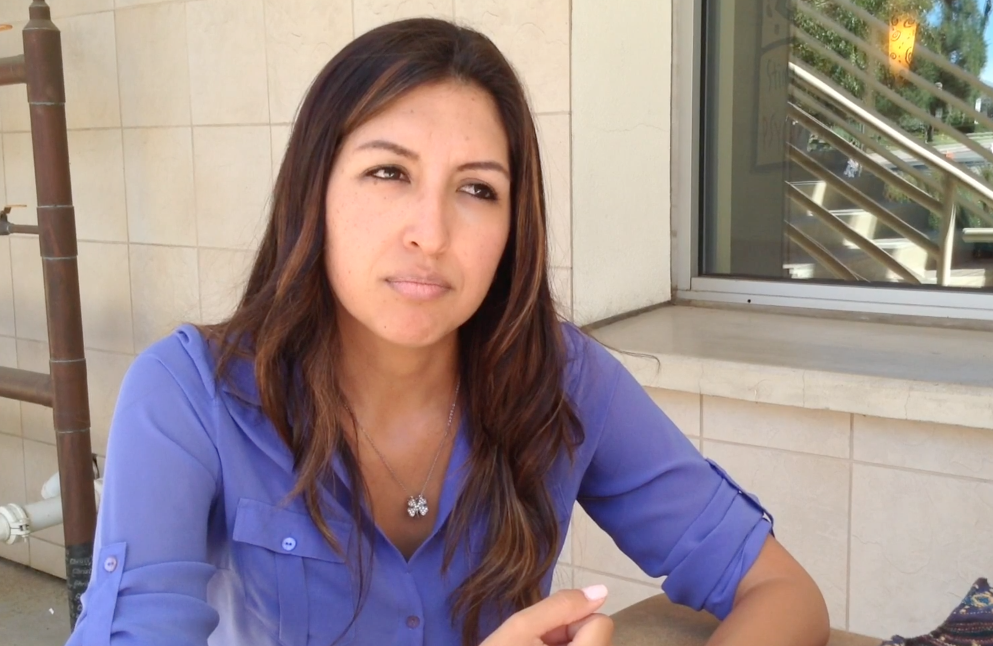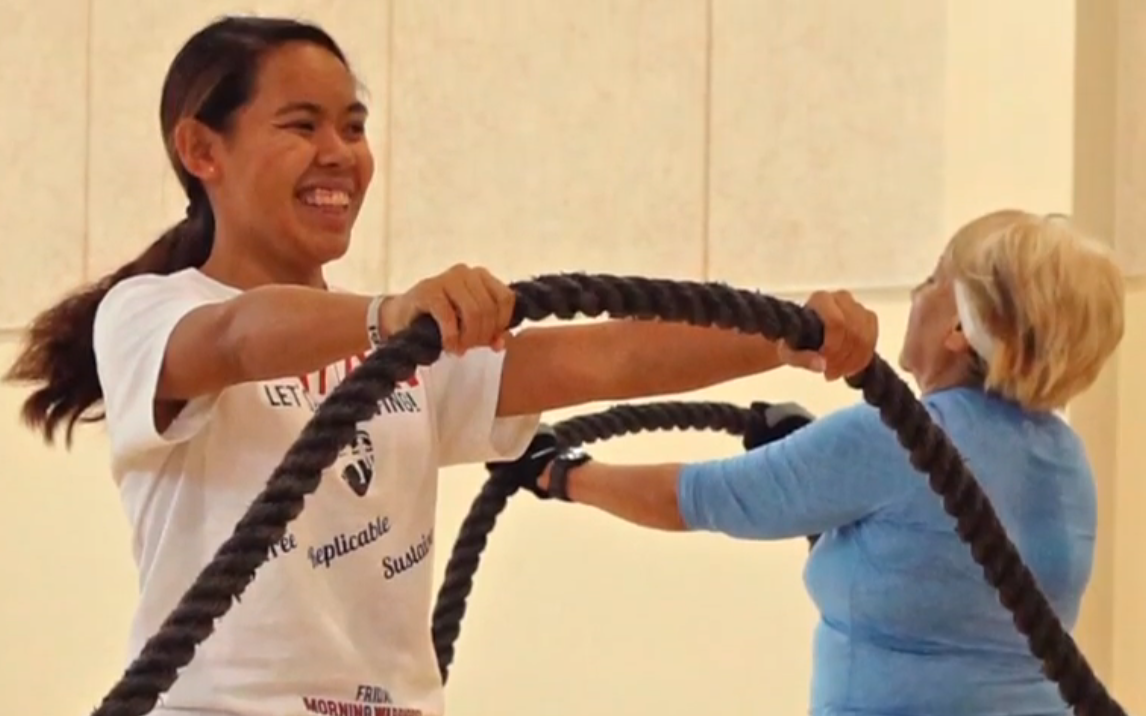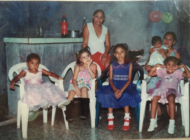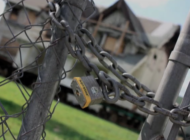A first-generation immigrant and a second-generation American Latino struggled with acculturated stress at younger ages, but learned to survive and conquer it.
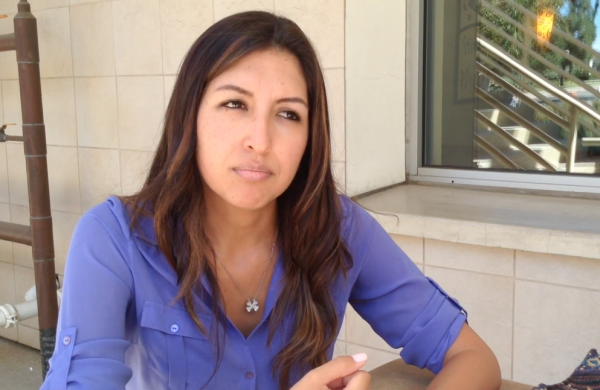
As a licensed clinical psychologist for Project Heal Mental Health program at Children’s Hospital Los Angeles, Teresa Celada encourages her patients to connect with their parents. Silvia Gutiérrez / El Nuevo Sol.
By SILVIA GUTIÉRREZ
EL NUEVO SOL
“I didn’t have time to be like everyone else,” said Juan Manuel Torres, a 31-year-old environmental and occupational health major at CSUN. “My classmates were weirded-out that I could speak two languages since the neighborhood where I grew up was mostly populated by whites.”
Torres is a second-generation Latino, or in other words, the U.S.-born son of Latino immigrants. He was raised in South Whittier where he was cast as the “other” during his elementary school days because of his complexion, overall appearance, and lack of cultural similarities with his classmates.
“It made me feel alienated,” said Torres.
Nathalie Vera, a first-generation immigrant from Perú, felt the same way when she attended middle school. Vera’s family migrated to the U.S. in 2004. She was bullied by the other female students for being new, studious, and a South American immigrant.
“I remember usually feeling anxious or like I always had to watch my back,” said Vera when referring to the predominantly Mexican neighborhood of Van Nuys.
Unknowingly, both Torres and Vera suffered from “acculturative stress,” a phenomenon that can affect any immigrant or child of immigrants depending on personal experiences.
Acculturative stress is prevalent in a large portion of the nation and can lead to anxiety and/or depression if it is left untreated, which can be common because many people are not aware of its occurrence.
According to a 2007 survey by the CDC, Latino youth were more likely to feel sad or hopeless (36.3%), to seriously consider suicide (15.9%), and to attempt suicide (10.2%) than white (26.2%, 14.0%, and 5.6%, respectively) and African American (29.2%, 13.2%, and 7.7%) youth.
Acculturated stress stems from challenges related to the adaptation of American culture, as stated by the National Center for Biotechnology Information. Adapting to life in the U.S. involves and isn’t limited to learning a new language, experiencing discrimination, adjusting to social norms, struggling with ethnic identity and culture, and the feeling of alienation. Individuals and entire families are affected.
Psychologist Teresa Celada says the aforementioned experiences are stressors and can occur at different levels of psychological behavior depending on an individual’s ability to deal with the issue. Some either suppress their feelings while others actively lash out.
Vera experienced both behaviors.
“I felt judged here all the time and I also came at an awkward stage, when I was entering my teens, so that was especially hard since everyone is still defining themselves and whatnot,” said Vera. “I stressed out about what others would think of my clothes; of the way I talked, of my culture, and of where I lived.”
At one point, Vera found herself in the middle of a physical fight with the same girls who had been discriminating against her and her younger sister for the past year. Instead of seeking help, Vera put on a brave front.
“Sometimes in an unconscious manner, people are not aware of these reactions and sometimes they are aware and might require professional help or psychological assistance,” said Celada.
Vera’s mother worried for her daughters, which in turn had a big influence on Vera’s experiences.
“My mom was usually a confident woman, but I noticed she felt scared for us when we told her about the girls from school, and she was paranoid and stressed out all the time,” said Vera. “I wasn’t used to seeing her so fragile. She was always like a business woman to me, so seeing her act insecure and preoccupied all the time made me feel less confident myself.”
Celada says it is normal for the parents of victims of stress to feel the same way as their children. Conversely, children can pick it up from their parents. For instance, Torres was often occupied with translating the aspects of life that stressed out his parents. It concerned topics that six-year-olds don’t typically understand such as “rent” and “paying bills.”
“I was out of the pop culture loop that other kids were in because I was helping my father with adult things all the time,” said Torres.
For several years, Torres suppressed his feelings of anxiety for not being able to connect with his classmates.
“I would find myself wanting to trust people but how do you do that when you’re overseen for appearing different?” Torres questions. “I worried about things they wouldn’t have understood because their parents didn’t need them to.”
Putting pressure on young people has a consequence, which can result in acculturated stress.
“It is not necessarily a healthy lifestyle for them,” said Celada.
As a licensed clinical psychologist for Project Heal Mental Health program at Children’s Hospital Los Angeles, Celada encourages her patients to connect with their parents.
Celada applies the same technique with patients from her private practice located in Alhambra. She is an expert in dealing with Latinos who suffer from acculturated stress and says that a solution to protect against the phenomenon is to establish a good support system. And if that does not work out for whatever reason, seeking psychiatric help is another way to combat stress.
“It is very powerful for children to be heard and important for their healing process,” she said. “Parents and caregivers need to listen to their children and provide the support that everyone needs.”
Vera was lucky to find support among her family and with the friends she made in high school. It helped her integrate into the American culture and made the teen feel comfortable in her own skin. Despite English being her second language, the 22-year-old currently studies English at the University of California, Santa Barbara, with the dream to be a reporter.
“It is going to be very challenging, but it will pass,” Vera advises. “There really are opportunities here (in the U.S.) as long as you know how to take them.”
At times, Torres still experiences some levels of angst, which he releases by venting with someone he can trust — his best friend. The CSUN student also makes himself feel better by getting involved on campus and helping lead outside protests.
“People stop questioning your background when they realize you’re enthusiastic about working and getting an education,” said Torres. “I want to be seen as the person who helps out because legacy is more important than success.
Both college students have managed to defeat the negative effects that acculturative stress can have on first and second-generation Latinos in the U.S. The anxieties they once experienced have for the most part subsided. Celada advocates that is it normal to undergo this type of stress.
“It takes time to adapt comfortably, but anyone can do it as long as they start by building valuable relationships,” said Celada.
Tags: acculturated stress anxiety first-generation immigrant Juan Manuel Torres Nathalie Vera Peruvian immigrant second-generation Latino Silvia Gutiérrez Teresa Celada






